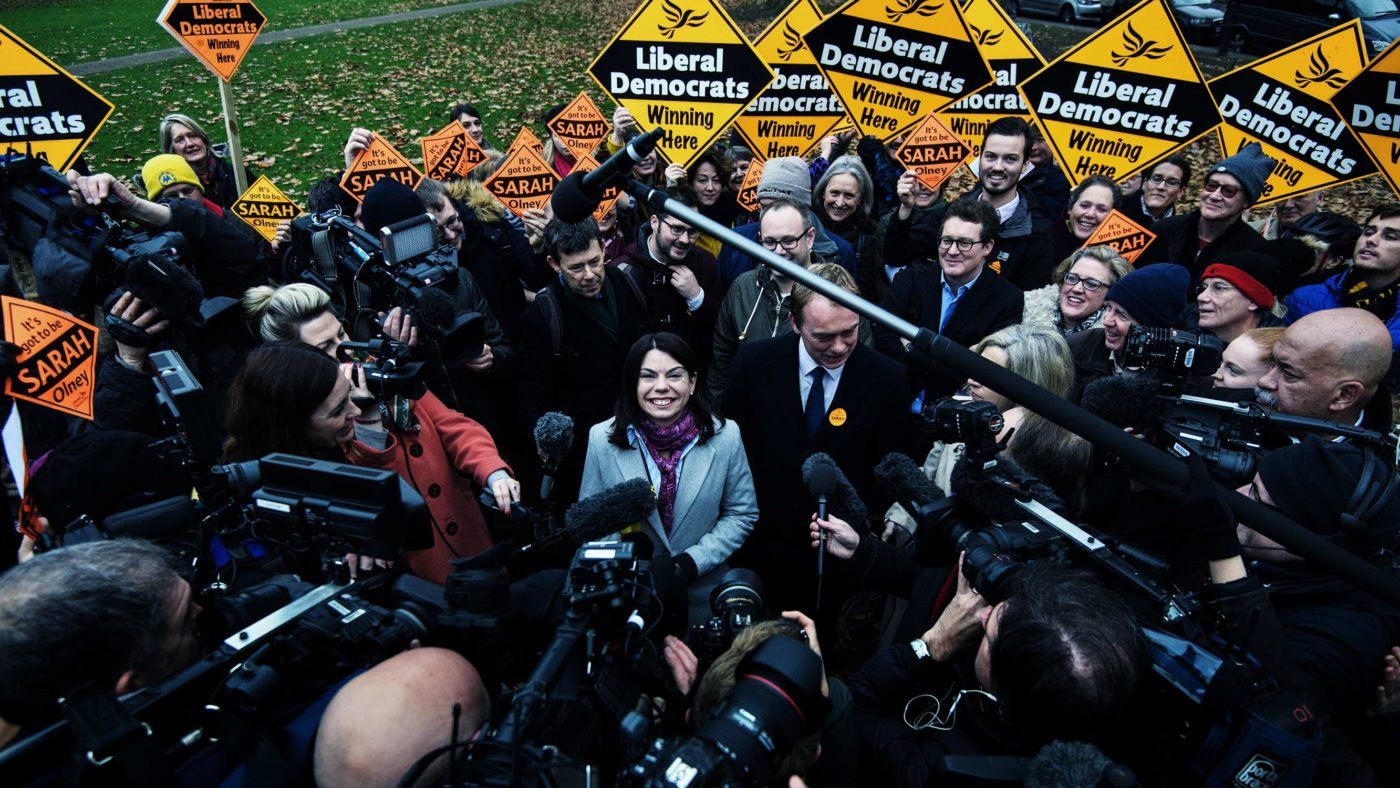This article is taken from CapX’s Weekly Briefing email. Sign up here.
Two weeks, two by-elections, two very different results – and two very different reactions.
Last week, the Lib Dems overturned Zac Goldsmith’s 23,000 majority in Richmond Park to add a ninth MP to their parliamentary tally.
Cue a spasm of joy among Remainers, celebratory tweets from Guy Verhofstadt, and no less than 15 separate op-eds from the Guardian, many proclaiming the start of the fightback against Brexit, or at the very least against “hard Brexit”.
And then, on Thursday in Sleaford and North Hykeham, came the revenge of the status quo.
The Tories held the seat with more than 50 per cent of the vote, their best performance in government since the Falklands War. UKIP were nowhere. And the Lib Dems, while doubling their share of the vote since 2015, failed to attract anything but a small fraction of the 40 per cent of residents who voted Remain – indeed, their vote share of 11 per cent was substantially down on both 2005 and 2010, when they got 18 per cent.
Get more from CapX
Follow us on Twitter
Like us on Facebook
Sign up to our email bulletin
About the only similarity between the two results, in fact, was the abysmal performance of the Labour Party, as Jeremy Corbyn demonstrated his matchless ability to simultaneously alienate Northern workers and Southern commuters.
In Sleaford, Labour limped in fourth. In Richmond, they got fewer votes than they actually have party members. Even more telling is that no one was particularly surprised.
On one level, it is understandable that Richmond should have monopolised the media’s attention. It featured a celebrity candidate in Zac Goldsmith, plenty of star guests (including, inevitably, Sir Bob Geldof) and a dramatic result.
Yet at the same time, there is a huge great irony staring us all in the face.
Those of us in and around Westminster have just spent months on end solemnly acknowledging that we failed to understand the temper of the times, that we ignored those beyond the gilded walls of the metropolis. After Brexit, after Trump, there was a need to reach out, to reconnect, to understand.
And at the very first opportunity to prove that it got it, that we’d changed our ways, what did we do? We went back to our old habits. Focusing on the people who were like us, who lived near us, who think like we do.
That isn’t to say that journalists shouldn’t have covered Richmond Park – of course they should. George Trefgarne, for instance, wrote a fantastic piece for CapX on the mutiny among the middle classes.
But it shouldn’t have come at the expense of treating Sleaford like an afterthought. Perhaps the perfect emblem of which came when Nigel Farage, that great anti-establishment crusader, turned up to stand in front of a banner that got the constituency’s name wrong. Or in the contrast between the media scrum in Richmond (pictured above) and the rather more civilised scene in Sleaford.
Sleaford isn’t, by the way, an island of deprivation. It’s actually one of the most prosperous parts of Lincolnshire – the sort of quiet, productive, largely monocultural place that attracts patronising descriptors about “the heart of England”.
Elsewhere on CapX
Why do politicians keep treating us like fools?
The middle classes of Richmond are revolting
The British economy sails steadily on towards Brexit
Which is precisely why it matters. There are, in the end, far more places like Sleaford than Richmond – places that are conservative not just electorally but culturally, where people are doing more than “just about managing”, but are by no means in the economic stratosphere.
These are the people Theresa May needs the support of. And they’re also the ones her Brexit negotiators need to bear in mind.
Because if we only listen to the people who live in Richmond and places like it, we’ll end up with a deal that works only for them.


